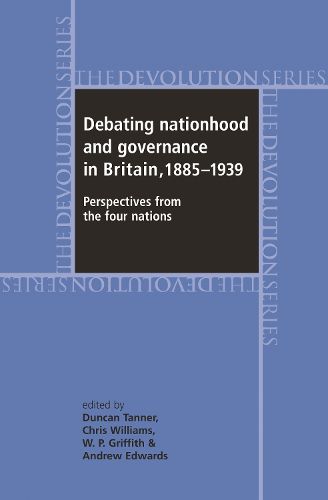Readings Newsletter
Become a Readings Member to make your shopping experience even easier.
Sign in or sign up for free!
You’re not far away from qualifying for FREE standard shipping within Australia
You’ve qualified for FREE standard shipping within Australia
The cart is loading…






This book is the first in-depth study of the debates over devolution in the four nations of the UK in the period up to 1939. It explores divergent trends and attitudes towards the principle of devolution at both local and national (UK) levels, explains the limitations of devolution as a political ideal and the inherent contradictions in the debates over devolution which were unresolvable in the period under study.
The book also demonstrates the enduring potency of an all-British context and of the influence and power of those who wished to defend the status quo. It investigates the role of national - and Imperial - identities in the debates over devolution, highlighting the continuing value and importance of ‘Britishness’ and British identity as vital factors in moulding popular opinion and support for established systems of governance. In so doing, the book offers fresh perspectives on the development of nationalisms in the ‘Celtic fringe’ during this period and demonstrates the problems and limitations of such identities as ways of mobilizing political opposition. – .
$9.00 standard shipping within Australia
FREE standard shipping within Australia for orders over $100.00
Express & International shipping calculated at checkout
Stock availability can be subject to change without notice. We recommend calling the shop or contacting our online team to check availability of low stock items. Please see our Shopping Online page for more details.
This book is the first in-depth study of the debates over devolution in the four nations of the UK in the period up to 1939. It explores divergent trends and attitudes towards the principle of devolution at both local and national (UK) levels, explains the limitations of devolution as a political ideal and the inherent contradictions in the debates over devolution which were unresolvable in the period under study.
The book also demonstrates the enduring potency of an all-British context and of the influence and power of those who wished to defend the status quo. It investigates the role of national - and Imperial - identities in the debates over devolution, highlighting the continuing value and importance of ‘Britishness’ and British identity as vital factors in moulding popular opinion and support for established systems of governance. In so doing, the book offers fresh perspectives on the development of nationalisms in the ‘Celtic fringe’ during this period and demonstrates the problems and limitations of such identities as ways of mobilizing political opposition. – .